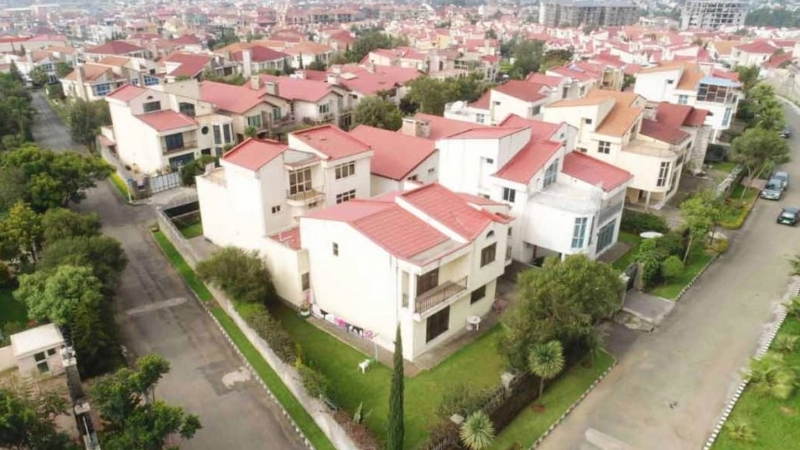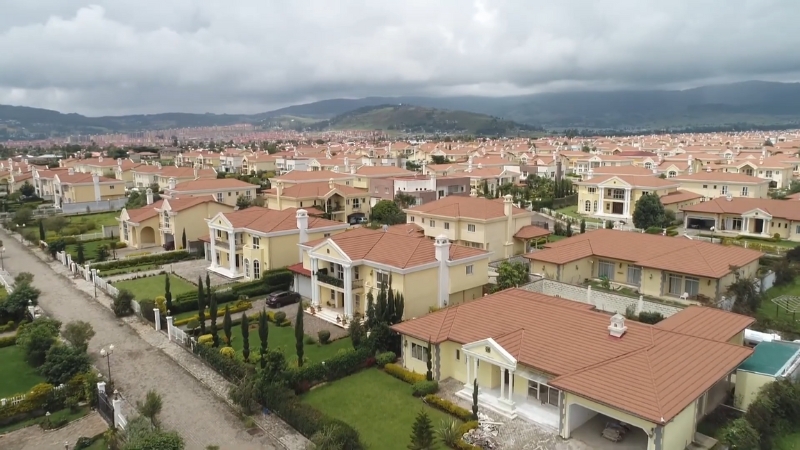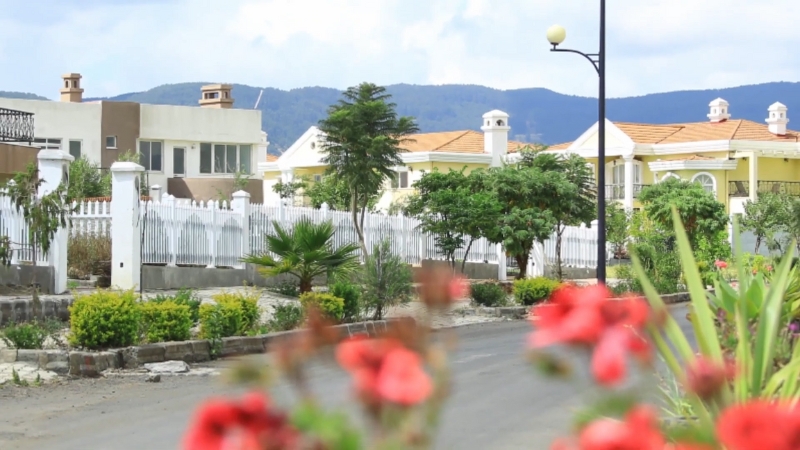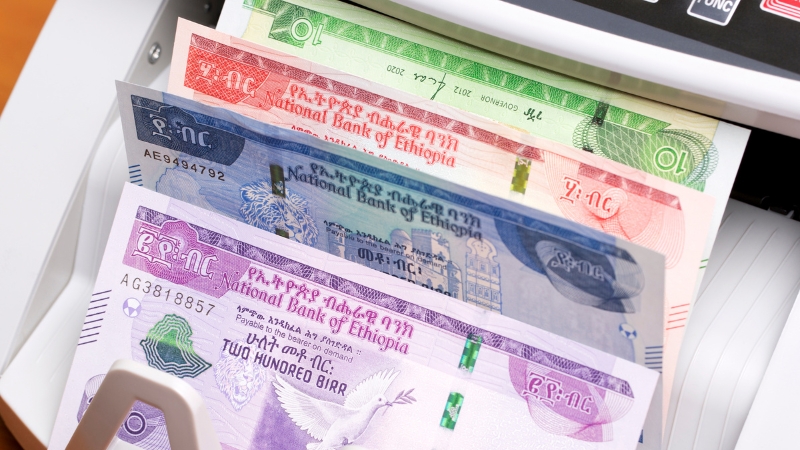Ethiopia sits in the middle of a structural change in how it treats property rights for non-Ethiopians. For decades, the answer was simple.
Foreigners could not buy real estate. The law locked the market down, and ownership sat almost entirely in the hands of citizens, diaspora, or investment vehicles tied to specific projects.
In 2024 and 2025, the government pushed the door open. The shift is real, even if the process is cautious and full of guardrails.
Anyone looking at Ethiopia in 2025 steps into an environment where enthusiasm runs ahead of implementation. The legal structure is new.
The land framework remains rooted in the constitution. The procedures that foreign buyers must follow are still being tested.
A foreigner can buy property in Ethiopia today, but only in a controlled and structured form. You need to know how the system works before you put money down.
Today, we will go through the core rules, practical steps, and the risks that shape the market. Let’s get started.
Land Is Public. Buildings Are Private.

The Ethiopian constitution treats land differently from many other countries. All land is public. It belongs to the state and the people.
No private party can own the land itself. That includes citizens. That includes the diaspora. That includes foreign investors.
What you can own is immovable property that sits on land. Houses. Apartments. Commercial structures. Those assets can be privately owned.
The land underneath them stays under the control of the state through leasehold systems.
Key outcomes of that structure:
- No freehold land in the European or North American sense
- Life revolves around lease contracts and property registrations
- The market focuses on structures rather than parcels
Foreigners operate within this framework. That never changes, even under the 2025 ownership reform.
Some advisors create simple visual cards for clients with a card generator so newcomers can follow how Ethiopia separates land ownership from building ownership.
Historic Restrictions on Foreign Ownership
For many years, only Ethiopians and foreigners of Ethiopian origin could own residential property. Foreign nationals with no Ethiopian background were shut out.
Companies could own buildings only if those buildings were tied directly to approved investment projects. If a foreign individual wanted an apartment in Addis Ababa for personal use, the answer was no.
Investment rules introduced earlier allowed factories, hotels, and similar assets to be owned by foreign investors, but that was tied to formal investment programs and minimum capital requirements. Personal residential ownership for foreigners was not available.
How the Law Started Changing
View this post on Instagram
In 2024, the government announced that it was preparing a new law that would allow foreign nationals to buy real estate in urban zones, according to Reuters. It tied the change to a broader economic opening.
The government wanted more foreign capital, more construction, and more inflow of hard currency. Housing and commercial development became targets for reform.
The announcement signaled a clear shift in policy direction. Foreign ownership would no longer be a blanket prohibition. The government positioned the change as part of its long-term economic modernization plan.
Draft Proclamation in 2025
In 2025, the change moved from policy to draft law. The Council of Ministers approved a draft proclamation that allows foreign nationals and foreign-owned entities to acquire immovable property.
The draft then moved to parliament. Several legal platforms summarised the core structure. Analysts noted that the government would keep land under public ownership while giving foreigners the right to own structures within tightly defined limits.
By mid-2025, some outlets reported that parliament had advanced the bill. Legal analysts continued to treat it as an active, evolving reform with final text subject to regulatory adjustments.
Where the Law Stands in Late 2025
A realistic assessment for 2025:
- The old ban is ending
- The new ownership path exists
- Implementation procedures are still catching up
- Foreign buyers face a mixture of opportunity and administrative uncertainty
A foreigner can buy property. The process is regulated. The land remains public. Approval remains mandatory.
What Foreigners Can Buy

The reform does not affect land ownership. According to Ethiopian Law, land stays public. What foreigners can buy is the structure, not the soil under it. The state issues long-term land leases.
All owners, domestic or foreign, build or buy on top of those leases.
Foreign buyers in 2025 can own:
- Houses
- Apartments
- Condominium units
- Commercial structures, when permitted
- Other immovable assets that sit on leased land
Core Conditions for Foreign Buyers
Legal summaries of the draft law describe a clear set of conditions. The main requirements that apply to foreign individuals or foreign-owned entities include:
- Minimum purchase value of about 150,000 USD
- A cap of five properties per buyer
- No purchases in border security zones
- No purchases in subsidized housing projects
- All payments in foreign currency
- No access to domestic bank loans for purchase
- Mandatory approval from the Ministry of Urban and Infrastructure
- Residency permits linked to compliant ownership
- Repatriation allowed for sale proceeds when taxes and reporting rules are met
Commercial ownership categories exist, but they depend on zoning and specific investment permissions.
Diaspora and Foreign Nationals of Ethiopian Origin
Diaspora buyers have enjoyed ownership rights for years. They can buy houses and apartments and join dedicated diaspora housing schemes. They usually pay through diaspora bank accounts in foreign currency.
Some financial institutions offer mortgages tailored to diaspora buyers. Their position does not change under the 2025 reform. They remain the most straightforward foreign-linked buyers in the market.
Foreign-Owned Companies
Foreign investors who operate legally registered companies in Ethiopia have long been allowed to own buildings linked to approved investments.
That includes factories, office buildings, hotels, and similar assets. They cannot own the land. They access land through leases.
The 2025 reform expands what they can buy beyond strictly investment-necessary assets. They still need to meet minimum investment thresholds. They still need formal investment permits.
How a Foreign Buyer Actually Buys Property in 2025

Theory is one thing. Ethiopia’s administrative reality is another. Buying property requires careful structuring. The steps below reflect how foreign buyers engage with the system in practice.
Step 1: Identify Your Legal Category
Foreigners fall into three main groups:
- Non-Ethiopian foreign individuals
- Foreign nationals of Ethiopian origin
- Foreign-owned companies investing inside Ethiopia
Your rights differ depending on your category. Your tax procedures differ. Your banking requirements differ. Your approval process differs.
Joint ventures with Ethiopian partners can be helpful for certain commercial projects, especially when local land allocation or zoning adds complications.
Step 2: Focus on Urban Locations
Urban property is the only realistic focus for a foreign buyer in 2025. Rural land is not privately transferable. Administrative control of rural land is strong.
Lease systems in rural zones are sensitive and often tied to local communities and agriculture. Property investors remain concentrated in Addis Ababa, regional capitals, and fast-growing commercial corridors.
Step 3: Conduct Deep Due Diligence
Ethiopia To Open Up Real Estate To Foreign Buyershttps://t.co/6QI48e6lPh pic.twitter.com/bAdXKocvo0
— Channels Television (@channelstv) March 24, 2024
Land records in Ethiopia are not always complete. Registration systems overlap. Some records are still paper-based. Urban renewal projects have created past disputes. Informal sales sometimes occurred before formal registration.
Due diligence requires:
- Verification of the seller’s title
- Confirmation of lease terms
- Checks for unpaid taxes
- Review of pending claims
- Assistance from licensed local lawyers
- Full searches at municipal land offices
Foreigners who skip this step risk long disputes.
Step 4: Secure Regulatory Approval
The draft law requires foreign buyers to obtain approval from the Ministry of Urban and Infrastructure.
Authorities verify that the buyer fits within the definition of an eligible foreigner, that the property meets geographic rules, and that funding complies with foreign currency regulations.
Additional procedures may apply when the buyer is a company or when the property sits inside a priority investment zone.
Step 5: Work Within Currency Rules
Currency controls shape every step of the transaction. Ethiopia faces periodic shortages of foreign currency. Banks prioritize essential imports.
Investors must register foreign-currency inflows with the National Bank of Ethiopia to secure future repatriation rights.
Foreign buyers must:
- Pay the full purchase price in hard currency
- Pay related fees in hard currency
- Document every transfer
- Avoid domestic loans for purchases
If the buyer sells later, repatriation flows through official channels and requires proof of initial registration.
Summary of What Different Buyers Can Do
| Buyer type | What you can own | Main limits | Key legal framework |
| Ethiopian citizen | Residential and commercial buildings on leased land | No land freehold | Constitution and land lease laws |
| Diaspora / Foreign national of Ethiopian origin | Homes, condos, some commercial units | Must hold recognized diaspora status | Diaspora housing programs and property rules |
| Foreign individual | Residential units and some commercial units | Minimum 150,000 USD, five-property cap, foreign currency only | Draft foreign ownership proclamation |
| Foreign-owned company | Buildings tied to licensed investments | Minimum capital rules, land via lease | Investment Proclamation and sector rules |
Key Risks in the Market

Land policy in Ethiopia sits at the center of long political debates. Property ownership for foreigners is sensitive. Regulations may adjust. Thresholds may rise.
Caps may shift. Definitions of eligible buyers may tighten. The law is new, which leaves regulators with wide discretion as they refine rules.
Foreign buyers need current local legal advice and continuous monitoring of official notices.
Property and Lease Disputes
Fast population growth and ongoing development have created overlapping claims in certain areas. Some developers sold units before securing final approvals.
Others built on sites with unclear registration histories. Disputes can last years.
Buyers must conduct full title checks through formal channels. Informal assurances are not enough.
Administrative Delays
Municipal offices still rely on manual systems in many zones. File processing moves slowly. Approval from the Ministry adds another layer.
Transactions can take months. Buyers should build long timelines into contracts and avoid unrealistic closing dates.
Currency and Inflation Exposure

The birr has faced sustained pressure. Inflation remains elevated. Hard-currency shortages affect business operations.
Foreign owners measure returns in dollars or euros, which invites exchange-rate risk. Repatriation requires strict compliance with official procedures.
Social Pressure and Political Sensitivity
Some local commentators express concern about rising real estate prices and the influence of foreign capital. If that concern expands, the government may impose new taxes or new ownership filters.
Foreigners should avoid aggressive purchases that might attract attention, such as bulk acquisitions in sensitive zones.
Where the Opportunities Are
Addis Ababa and other major cities continue to grow. The housing supply has not kept pace with demand.
Quality apartments in secure zones draw interest from NGOs, international companies, diaspora families, and local professionals. Rental demand in core neighborhoods remains strong.
Areas with stable demand include:
- Bole
- Kazanchis
- Summit
- CMC
- Areas near major transport links
Commercial and Mixed-Use Development
Ethiopia aims to boost the banking, telecom, retail, and logistics sectors. A major new airport project sits on the agenda. Service industries need more office space.
Hospitality needs upgraded facilities. Foreign companies that know how to structure investments inside Ethiopia can build or acquire buildings in business districts or new commercial zones.
Diaspora as Natural Partners
Diaspora investors remain more familiar with the market. They speak local languages, know administrative culture, and have established ownership channels. They often co-invest with international buyers or act as local representatives in joint ventures.
Higher-Standard and Green Buildings
Demand for better construction quality grows every year. Buyers want reliable utilities, better insulation, energy-efficient systems, and organized property management.
Foreign developers with established standards in green design can find a clear niche in Addis Ababa and other major cities.
What a Foreign Investor Should Keep in Mind in 2025
@nassermuzaaya “Ethiopia — one of the few African countries that restricts property ownership to citizens — may finally open its doors to foreigners. A draft law proposes allowing foreign nationals and diaspora to buy homes, with conditions. But could this bring growth… or price locals out of their own cities?” #Ethiopia #InvestInAfrica #AfricaRealEstate #AddisAbaba #DiasporaInvestment ♬ African beat – Made By J
Foreign property ownership in Ethiopia is now possible. The law allows it. The government supports it.
The market needs capital and new development. The land system remains public. The lease structure remains dominant. Administrative processes move slowly. Legal interpretation evolves.
An investor needs local legal support, conservative assumptions, patience, and clear capital documentation. Ethiopia functions as a frontier market where returns exist but depend on careful execution.
Buyers who insist on verification, compliance, and long timelines can position themselves well.
The opportunities are real for residential units in urban centers, commercial projects tied to growing sectors, and developments that meet modern standards. The risks are equally real.
The investors who treat the market with discipline rather than speed are the ones most likely to succeed.
